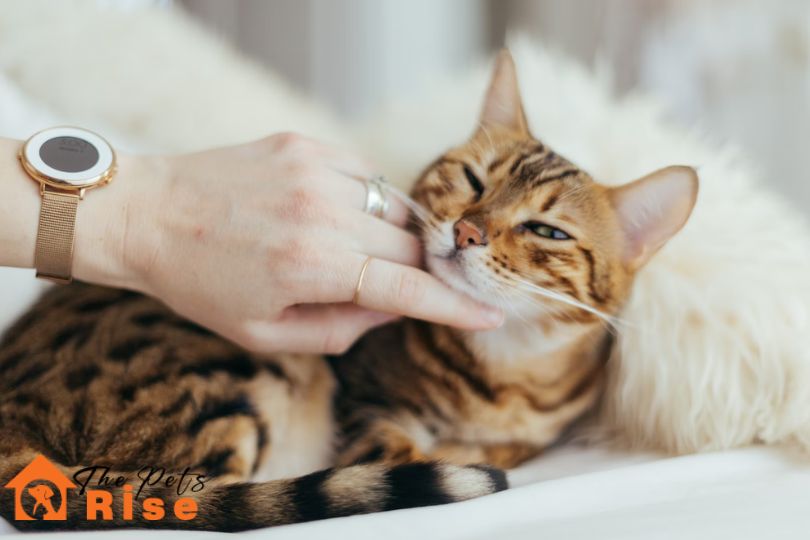When you own a cat as a pet then you will not get to have a cute and fluffy pet but its cute style of playing with the things around will make you feel good as well. However, this is only possible when your cat has good health. This is why understanding the importance of annual cat vaccines and the cat vaccine schedule for cat vaccinations is compulsory. Just like the vaccination for humans, cat vaccination has been scientifically proven to keep the cat secure from several health conditions. They help the cats in combating the transmission or incubation of fatal diseases.
The cat vets are dedicated to vaccinating the cat to make sure your cat is safe and secure and has the best health condition. With the help of Yearly cat vaccinations, you can maximize the immunity system of it without any doubt but experienced vets don’t follow one vaccination fits all strategy regarding this. This protocol isn’t the right thing to do. Instead, they treat each patient (cats in this scenario) by taking a look at the risk factors that can affect the performance of vaccination such as age, health condition, and lifestyle.
Concerned cat owners have to ask several questions about cat vaccination such as cat vaccination how often should be implied? And this is something that every loving pet owner should have. In this article, you will learn about the annual vaccinations for cats and understand the issues surrounding vaccination. So sit back relax and continue reading the following for a better idea about yearly cat vaccinations.
The Crucial Cat Vaccines and Cat Vaccine Schedule
The basic purpose of the annual vaccinations for cats is to prevent diseases and they aren’t a cure for a sick cat. You can divide vaccines for cats into two major categories, core, and non-core. Core vaccination is crucial that every cat should get. They are crucial for the safety of several common and contagious diseases.
The Core Annual Vaccinations For Cats Include the:
- Vaccination for rabies is required by the law or in an area where rabies exists. This is the vaccination indoor cats need yearly
- Viral Rhinotracheitis (FVR) – herpes virus
- Panleukopenia (FP) – feline distemper
- Feline Calicivirus (FCV)
The other yearly cat vaccinations that are given to the cats according to their type and lifestyle, environment, and general health are known as non-core vaccines.
The non-core vaccines that are common are:
Feline Leukemia Virus (FeLV) – Cats can also suffer from leukemia which is why kitten needs to be vaccinated to stay safe against the leukemia virus. The future doze depends on the particular pet’s risk factors.
- Bordetella bronchiseptica
- Chlamydophila Felis
When it comes to the cat vaccine schedule then the Kittens start to get vaccinations between 6-8 weeks of age. When they get boosters, they will be observers at 3-4 week intervals till they are 20 weeks old. These boosters are crucial for several reasons or else the immunity they will get with the mother’s milk will be useless.
If you have a cat with no yearly cat vaccinations history then consider it an unvaccinated cat. If your cat hasn’t got any vaccine then you can get it in two appointments. The cat vaccine schedule should be 3-4 weeks apart. If you wonder whether cats need vaccinations every year then mind that only booster vaccines are given to adult cats every 1-3 years. But it depends on the type of vaccinations and the risk factors.
Cat Vaccination How Often?
You might wonder about cat vaccination how often should be implied. Annual vaccinations for cats are a different scenario and in fact, pets have different vaccination types and schedules in general. However, cat vaccination schedules depend on different factors such as the cat’s lifestyle and type of cat such as indoor or outdoor cat. You should discuss with your vet the vaccination schedules and risk factors. Following is the schedule for the indoor cat vaccination.
Kitten Vaccinations:
- 6-10 Weeks Old: FVRCP (feline distemper)
- 11-14 Weeks Old: FeLV (feline leukemia), FVRCP (feline distemper),
- 15+ Weeks Old: FeLV (feline leukemia), rabies vaccine, FVRCP (feline distemper)
What Vaccines Do Indoor Cats Need Yearly?
If you believe that your cat is safe because it stays indoors all day then think again. They can still contact the germs and get sick. Cats can be adventurous in their own way. They may like to sit all day on their bed or they may go out for a walk by sneaking out of the door to play in the yard or in the neighbor’s garden. The vets around recommend that cat vaccine schedules should be followed yearly and get them vaccines with the core vaccinations.
They have an idea about what vaccines do indoor cats need yearly. They will keep the cat safe from all of the diseases that it may potentially catch while going outside. Several states even have made it mandatory to get the rabies vaccine for your cat. The vet will give you a certificate after giving annual shots for cats for a rabies vaccine and any other annual cat vaccines.
Outdoor Cats Vaccination
Unlike indoor cats, outdoor cats often come into contact with other animals which means they are prone to contact with other animals, parasites,s and diseases that will make them vulnerable to illness. Core vaccines are the best solution for such cats and if you are wondering do cats need vaccines every year then yes it is true. If your cat spends most of its time playing outside then annual shots for cats along with core vaccines are crucial. You can contact your cat’s veterinarian to determine the right temperament shot for cats that suits its health.
The Side Effects Of Annual Cat Vaccines
Just like humans, after having annual cat vaccines, cats do show some side effects as well. While the side effects are not severe in nature, most cats will not show any sign of side effects of the vaccine. You will need to know the best cat care tips to take care after vaccination of the cat. However, if they do show some side effects after having annual shots for cats then they will be short and normal in nature. However, when you are learning about the cat vaccine schedule you should also consider the following symptoms. You should consider them as the side effects of vaccinations. They include
- Hives
- Fever
- Vomiting
- Diarrhea
- Loss of appetite
- Severe lethargy
- Limpiness or Immobility
- Swelling and redness around the injection site
In some scenarios, you may notice some negative side effects after the temperament shot for cats. If you find them or suspect them then immediately call the vet to determine if your cat needs any special care.
Why Vaccination is Important?
When you get your first pet cat then you will need to consider visiting the vet as soon as possible. You should schedule an appointment and let the vet check your kitten. A preventive health plan is crucial that include annual cat vaccines. They should get the vaccine with core and non-core vaccines to keep them secure from certain health conditions. Learn about the different effects of vaccines on cats and their health benefits. Learn good pet care tips for your pet cat. Spend some time discussing with your vet to get the best idea about what vaccines indoor cats need yearly.
Do Cats Need Vaccinations Every Year?
You may be wondering “do cats need vaccinations every year”. Mind Many factors determine whether cats need vaccinations, including their age, lifestyle, and overall health. Kittens should be vaccinated starting at six to eight weeks of age, according to most veterinarians. Once they reach 16 weeks of age, they will continue to receive vaccinations every three to four weeks.
After receiving the initial vaccination series, adult cats need booster shots once a year, followed by three-yearly injections thereafter. Vaccines against feline panleukopenia, feline calicivirus, and feline herpesvirus protect cats from common and potentially fatal diseases. A cat’s lifestyle may require additional vaccinations in addition to core vaccinations, such as for feline leukemia or rabies.
In some cases, vaccinations require booster shots every three years or more, while others may last longer and need only annual vaccinations. Your veterinarian should determine the appropriate vaccination schedule for your cat based on her individual needs when it comes to vaccinations.







